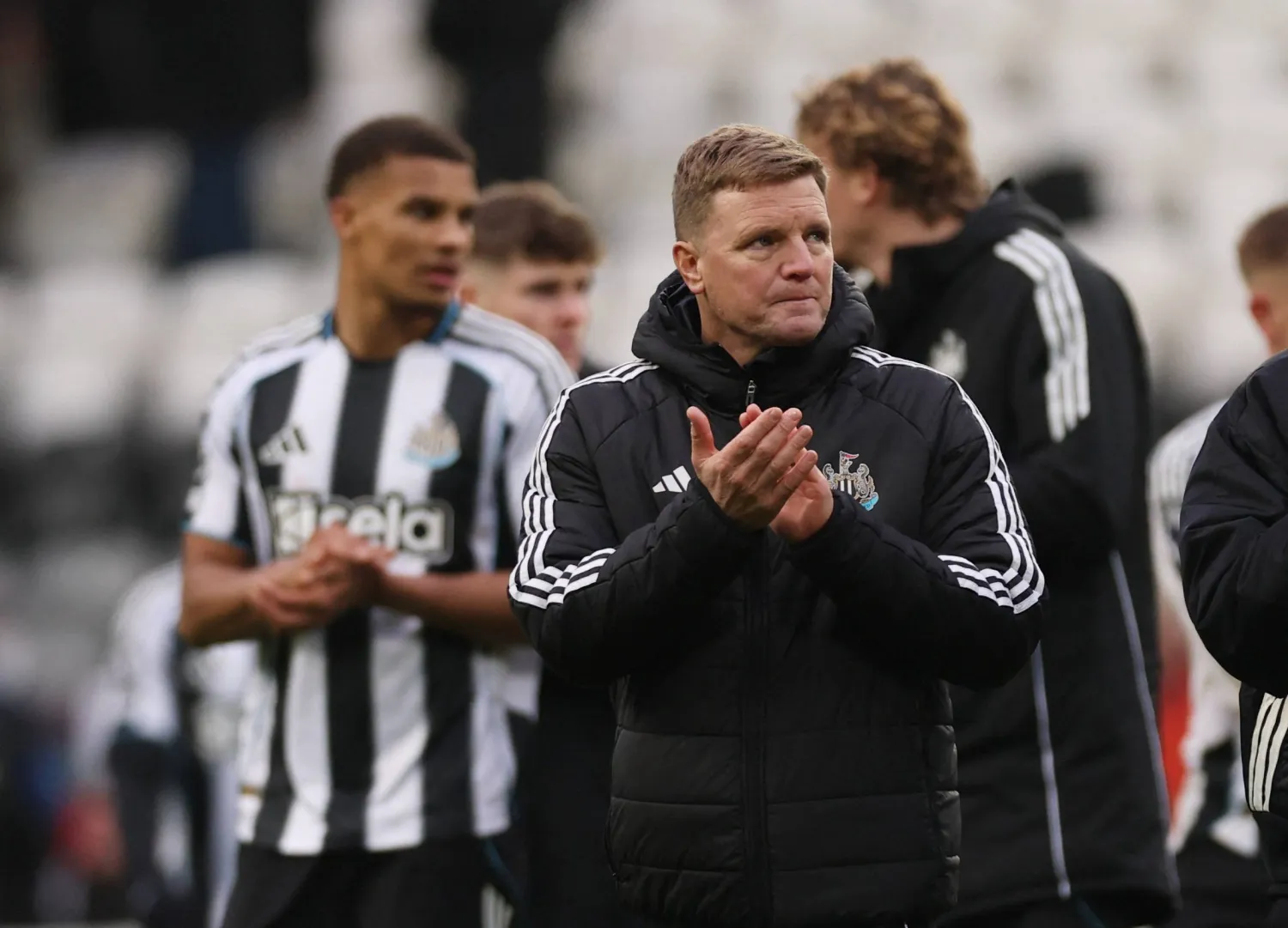Right before Zheng Qinwen delivered the very first serve of a victory that would deliver China's very first Olympic tennis singles gold medal, loud shouts of “Jia You!” in Mandarin rang out from all sections of Court Philippe Chatrier on Saturday as fans waved the country's red-and-yellow flags.
It’s a phrase that literally means “Add oil!” — in other words, “Hit the gas!” — and is loosely equivalent to “Let’s go!” Those yells resumed right after Zheng's opponent in the 2024 Paris Games women's final, Donna Vekic of Croatia, put her return into the net. And they were heard over and over again on a breezy, cloudy afternoon whenever things went Zheng’s way.
Which was rather often. The 21-year-old Zheng earned the biggest title of her still-nascent career by defeating Vekic 6-2, 6-3 with the same powerful serves and groundstrokes she used to eliminate No. 1 Iga Swiatek in the semifinals.
“I always want to become one of the Asians that can inspire young kids and make them love tennis more, because tennis is such a great sport, especially for girls. You need to fight. You need to have strength. You need to be fast,” said Zheng, who signed several autographs for members of the crowd after the match. “After this gold medal, I feel, finally, I can play tennis more relaxed.”
Not that she hadn’t already shown plenty of promise. Zheng is ranked No. 7, after all, and was the runner-up to Aryna Sabalenka at the hard-court Australian Open in January.
This triumph, though, could make her a real star at home. International Tennis Hall of Fame member Li Na is the only Chinese player to win a Grand Slam singles title — at the 2011 French Open and 2014 Australian Open — and served as inspiration for Zheng when she was a kid learning the sport.
“I have always been jealous of history-makers like Li Na,” Zheng said. “No matter what, she’s always the first, because she’s the first Asian player to win a Grand Slam. And I now become the first Asian player to win Olympic gold. I made history, as well. However, I still have a long way to go, because winning a Grand Slam is always my dream.”
The Olympic tennis matches are being played at Roland Garros, the clay-court facility that hosts the annual French Open. Swiatek is a four-time champion at that event, including titles there the past three years, and carried a 25-match unbeaten streak at Roland Garros into her matchup with Zheng.
But Swiatek ended up with the bronze for Poland, and she snapped a selfie with Zheng and Vekic during the medal ceremony.
Vekic, a 28-year-old who is No. 21 in the rankings, got a silver three weeks after being a semifinalist on the grass courts at Wimbledon. She was so worn out by that run at the All England Club that she considered withdrawing from the Olympics.
“I had pain in my arm. Pain in my ankle. I was sick,” Vekic said. "Everything was happening all at once.”
In Paris, Vekic found her stride, including a victory over US Open champion Coco Gauff. On Saturday, that Vekic seemed spent, bending over and leaning on her racket.
What Zheng was most proud of, what she thinks made a big difference for her over the past week, was her patience during points and mental strength between them.
“If you talk about shots, I have better shots than Vekic. I know it,” Zheng said. “But in the final, it’s not about shots.”
After Zheng forced an error with a huge forehand to break serve and own the first set, she soon went up 2-0 in the second. That’s where Vekic made a bit of a stand, stealing one of Zheng’s service games and getting to 2-all.
But — with chair umpire Eva Asderaki-Moore asking spectators to refrain from making noise during points — Zheng took control anew, breaking to lead 5-3. When she smacked a forehand to close the win, Zheng slid onto her back on the clay, then got a Chinese flag from the stands, held it like a cape to roars and draped it over her sideline chair.
It wasn’t just Li who received a piece of credit from Zheng during her news conference.
Zheng spoke about admiring Roger Federer, the 20-time Grand Slam champion who retired in 2022, and studying his matches to learn technique and tactics: “The way that he plays — so classy,” she said. She talked about looking up to Chinese hurdler Liu Xiang, whose victory in the 110-meter hurdles at the 2004 Athens Games was the nation’s first gold for a man in track and field.
And she discussed — and made sure to thank publicly — her parents. They started her in tennis at age 7. Mom quit her job when Qinwen was 12 to make sure she ate and slept properly. Dad, she said, “always pushed me hard,” taking her to a track to run up and down stairs, even on the Chinese New Year, when “everybody rests. But me? There’s no day of rest.”
“My success is not only my success. A lot of that is coming from my parents,” Zheng said. “They teach me how to be disciplined. They teach me how to stay focused on your dream. They always believed in me.”









